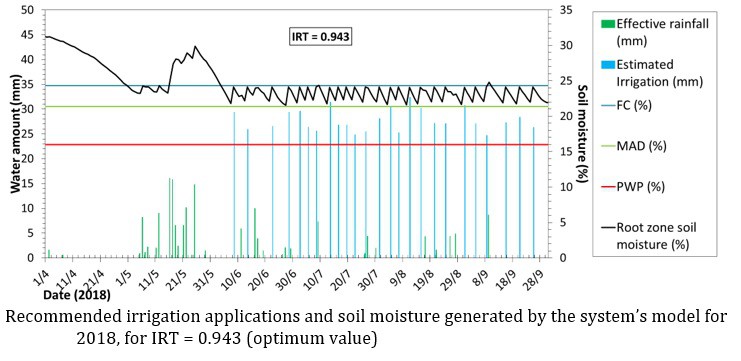| Authors: |
I.L. Tsirogiannis, P. Baltzoi, K. Fotia, P. Barouchas, A. Christofides, N. Malamos |
| Keywords: |
water requirements, micro-sprinkler, efficient irrigation, DSS |
| DOI: |
10.17660/ActaHortic.2022.1335.65 |
Abstract:
In Greece – like many Mediterranean countries – irrigation is by far the major water user. In this framework the development of operational tools that support decisions and provide recommendations aiming to improved irrigation management is of great importance. In this study a web-based participatory system for irrigation management (the system hereafter) that operates from 2015 at the plain of Arta (NW Greece) is evaluated for the case of kiwifruit, an evolving crop for the area which is characterized by high water requirements. Water usage and soil moisture were monitored in a typical for the area orchard of Actinidia deliciosa ‘Hayward’, during three irrigation periods (2016, 2017 and 2018). At the same time the system generated recommendations for future irrigation applications, based on the outcomes of a water balance model that followed the principles of FAO’s paper 56. The model took into account: (a) measurements of weather parameters from agro-meteorological stations in the area; (b) soil, crop and irrigation system parameters; (c) time and volume of the actual irrigation applications and (d) weather data forecasting. The soil moisture time series that were produced by the system’s model were compared to those measured by the soil moisture sensors. The largest root mean square error (RMSE) was found to be 5,1%. It was also found that following the system’s recommendations, could lead to significantly fewer irrigation applications and less water usage per year compared to the applied practice. |

